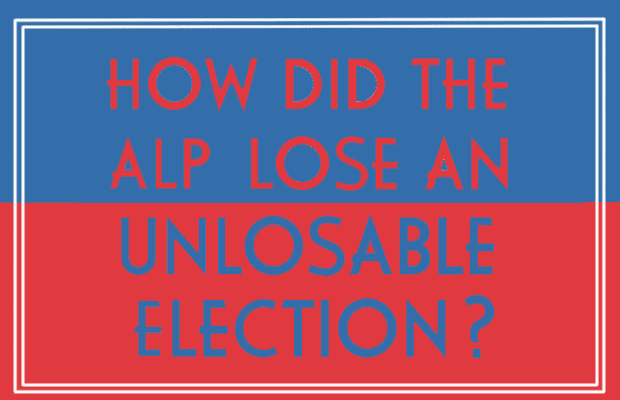Disclaimer: Daanyal Saeed is a member of National Labor Students (Labor Left)
With the Coalition’s shock victory at the 2019 election, Australia has voted to retain a government that treats marginalised communities with contempt. The question then, is how the Labor Party lost an election that was considered all but won, whilst offering the most comprehensive policy platform since the Hawke-Keating era. Given the magnitude of the loss and the fact that it came in traditionally working class seats, there are now shouts from the party’s conservatives for it to return to a centrist platform for the next three years. This will result in further losses, and more people will be hurt.
The Labor Party needs to commit to a genuinely left-wing policy platform in order to succeed. Party membership has dwindled to a fraction of what it was before Hawke because the labour movement has rooted its successes in championing rights for those with work, and not for those without. The Coalition has succeeded here in its pitch of ‘jobs and growth’. If the Labor Party follows Corbyn’s lead in the UK, it will see the revitalisation of the fabled ‘base.’ Despite what the conservatives say, it is entirely possible to lead the Party back into government with an unapologetically progressive agenda.
As has been mused over the past fortnight, the franking credits policy killed Labor. It was a sensible, redistributive tax policy that ultimately only affected 4% of the population: those wealthy enough to benefit from dividend imputations. However, in targeting the upper-middle classes, as opposed to multinational corporations and big business, the Labor Party chose an altogether more relatable group to focus on. This was their biggest failing – the policy was incomprehensible to most, and anyone who did, could empathise with those affected. We saw through the Liberal Party’s ‘franking credits inquiry’ that older voters in particular were absolutely incensed; Rodney and Sue from Woollahra would get rid of their gardener and cleaner, and cancel their charity donations. Ultimately, the campaign struggled for cut-through because it lacked cohesion – it bumbled through negative gearing and franking credits before moving on to schools and hospitals. It was an awfully diluted model of class warfare – one that relied on the electoral equivalent of nerf guns instead of assault rifles. It simply was not strong enough.
Electorally however, the biggest impact on Labor’s primary vote was not in affluent areas that benefit from franking credits – it was in Queensland, where their primary vote dropped 4.4%. The expectation was that losses in central Queensland marginal seats would be countered by an improved vote in metropolitan areas. However, the Labor Party failed to recognise coal mining’s centrality to the state’s economy. It is not the case that central Queensland is filled with rabid climate denialists; the Greens actually improved their primary vote in the House and Senate by 1.1% and 3.3% respectively. Queenslanders voted for jobs and for certainty; not against climate action. Labor’s version of climate action as a less-than-enthusiastic response to a single coal mine, as opposed to a cohesive movement incorporating workers, is exactly the problem. Renewable energy is cheaper than coal, and yet not only did Labor fail to link climate action to lowered costs of living, but there was a baffling lack of focus on a just transition from fossil fuels. The franking credits policy would add $10.7 billion to the Australian economy over the next four years, according to PBO costings – enough for a $67,000 per year transition fund for each of Australia’s 40,000 miners, who could be transitioned into jobs in sustainable industry, manufacturing or infrastructure. Whilst this is of course a reductive analysis, it demonstrates the possibilities available when parties commit themselves to climate action that considers working people. Alternatives also lie in their own state platforms; NSW Labor proposed a state-owned renewable power company at the last election, the adoption of which at national level would address both climate action and cost of living. Instead, the ALP in its introspection concluded that it’s the voters who are wrong. We see this with the potential new leader Anthony Albanese attributing the loss to ‘messaging’, rather than the real-world impact of Labor’s climate policy itself.
This really was the climate election. Progressive firebrands the world over have realised that the dichotomy between environmental action and cost of living is an utter lie, most prominently seen with Alexandria Ocasio-Cortez’s Green New Deal. Labor needs to be next. 2022 is a long way away, and many communities will be hurt under this Coalition Government. By the time we get another chance to turf them out, we will have used up a quarter of the time we have before climate change becomes irreversible. As such, the Australian Labor Party must realise the mistakes they have made this election, and not give in to the centre’s false cries of pragmatism.





